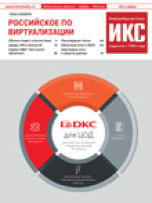| Рубрикатор |  |
 |
| Все новости |  |
World News |  |
 |
UK ripe for mobile network consolidation
| 30 сентября 2009 |
The UK is crying out for mobile network operator consolidation. The market is mature and nowhere is as brutally competitive for all participants. In the 3rd and 4th positions out of five, Orange and T-Mobile are desperate to improve their competitive positions and financial performance.
The proposed joint venture between these two is attractive on several counts, while plans for control and branding are marred by an indecisive compromise and procrastination. Precedent is unfavorable for FT and DT as JV partners.
Anemic profits with operator EBITDA margin percentages in the low twenties illustrates that the UK mobile operator market is ailing. Even global market leader Vodafone is struggling, despite its economies of scale in purchasing and branding. Pricing power is nonexistent with market shares spread fairly evenly among network operators, including their MVNO-hosted subscribers, and with regulatory controls hammering hitherto lucrative call termination and roaming charges for voice and SMS. In contrast, market average EBITDA margins range from 35-45 percent in France, Spain, USA, Germany and Italy where there are one or two clear market leaders and in most cases fewer competitors.
Intense competition with low prices can be beneficial to consumers in the short term, while damaging in the longer term. Mobile is a capital-intensive business and the sector needs a new round of investment and expansion with the development of the mobile broadband, including new spectrum and equipment. Even deep-pocketed multinationals cannot justify investing and will contemplate leaving national markets if returns are inadequate, as is currently the case in the UK.
But nobody's willing to sell for a price anyone else is currently willing to pay. This is a bit like residential property markets of late. Foreclosures aside, many would-be sellers try to ride out the downturn rather than take a hit with a low price. This explains why 3UK has not been bought, despite being up for sale.
Under these severe financial pressures and constraints, Deutsche Telekom and France have decided to merge their respective UK businesses into a 50/50 JV. With regulatory approval expected in the first half of 2010, the combined business will become the UK's largest operator with 28.4 million subscribers and a 37 percent market share on the basis of 2008 figures. Unlike Orange and T-Mobile with similar standing, there is no comparable player to 3UK in 5th position. It continues to wait for better days.
Engineering of the financial and orthodox forms is significant in this JV formation, its deconsolidation from corporate accounts and in operations. Upon deal completion, parents' EBITDA margins rise a bit in a trice and the merger synergies worth GBP 3.5billion are promised in reduced annual OPEX and CAPEX of GBP 445 million and GBP 100 million respectively. Costs will be saved in the network with rationalized base station and site figures along with reductions in retail outlets and staff numbers. The structuring for GBP1.25 billion of debt reflects differences in value for the two entities being combined.
The deal is a lot less unacceptable than the humiliating figures of around GBP 3.5 billion that were rumoured to have been offered T-Mobile by Vodafone and O2. The need to do something was serious, but this figure is much less than the GBP 8.4 billion T-Mobile paid to buy the company, formerly called One2One, in 1999, let alone the GBP 4 billion it paid for 3G spectrum plus subsequent network investments. FT paid GBP 26.9 including debt for Orange. The JV is a clever wheeze because it saves face by bringing a solution without the embarrassment of having to recognize such losses in value.
Significant problems remain with two issues: control and branding. With partners' desire for equality, there is by definition no controlling shareholder. In absence of this, the JV agreement will stipulate, among other things, dividend policy with 90 percent to be distributed to shareholders. That will avoid the pickle that Vodafone is in with no cash flow from its 45 percent stake in Verizon Wireless in the U.S., but it is a recipe for management gridlock. Instead, agility is required. It is difficult to predict what the future holds and how the interests of the shareholders might diverge. Deferring the decision for 18 months on whether or not and how to consolidate brands reveals the JV is already having difficulties with the weightiest of decisions.
The competition authorities in the UK and Europe might attach some strings or at least undertake a thorough review prior to approving the JV. There is so much infrastructure sharing in the UK that competition might be affected. T-Mobile shares its 3G network with 3UK. Orange announced RAN sharing with Vodafone, although it seems only mast sharing has occurred. Instead, Vodafone and O2 are sharing infrastructure. These arrangements, including the provisions for folding them up, are the kinds of things the antitrust authorities will likely review. If the JV is allowed, it would be difficult to justify denying H3G, with around 7.5 percent market share, the right to be acquired by Vodafone or O2. This, however, would limit the market to just three network-based competitors.
The proposed new JV stirs memories of the sorry tale when FT and DT combined their international fixed service offerings to corporate customers in the mid 1990s. That old JV was named GlobalOne. DT and FT even arranged cross-shareholdings to consummate its partnership. It was actually a bit more complicated because Sprint also joined with a $3 billion investment by FT and DT. Within five years from start to finish the failed partnership was dismantled. Thankfully the strategic logic is much better this time in UK mobile.
The new mobile JV's integration will be a walk in the park in comparison to T-Mobile's rumoured desire to acquire Sprint in the US. Sprint is still floundering with the legacy of disparate mobile network technologies, brands, marketing strategies and organizational clashes with its acquisition of Nextel in 2005. Its diversification into WiMAX with Clearwire makes matters worse. Sprint Nextel is suffering massive customer losses while market leaders Verizon and AT&T are still enjoying significant additions. With its severely depressed stock price and market capitalization at only around $11 billion Sprint Nextel might go for a song; but there's no quick or easy fix, with or without T-Mobile USA.
Keith Mallinson
Источник: FierceWireless:Europe

















Оставить свой комментарий:
Комментарии по материалу
Данный материал еще не комментировался.